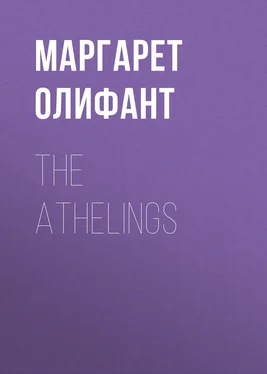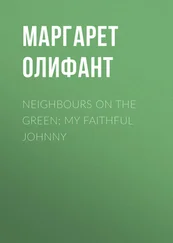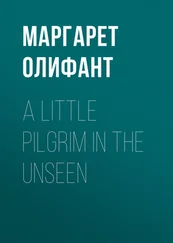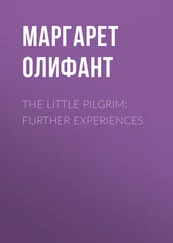Маргарет Олифант - The Athelings
Здесь есть возможность читать онлайн «Маргарет Олифант - The Athelings» — ознакомительный отрывок электронной книги совершенно бесплатно, а после прочтения отрывка купить полную версию. В некоторых случаях можно слушать аудио, скачать через торрент в формате fb2 и присутствует краткое содержание. Жанр: foreign_prose, literature_19, foreign_antique, на английском языке. Описание произведения, (предисловие) а так же отзывы посетителей доступны на портале библиотеки ЛибКат.
- Название:The Athelings
- Автор:
- Жанр:
- Год:неизвестен
- ISBN:нет данных
- Рейтинг книги:5 / 5. Голосов: 1
-
Избранное:Добавить в избранное
- Отзывы:
-
Ваша оценка:
- 100
- 1
- 2
- 3
- 4
- 5
The Athelings: краткое содержание, описание и аннотация
Предлагаем к чтению аннотацию, описание, краткое содержание или предисловие (зависит от того, что написал сам автор книги «The Athelings»). Если вы не нашли необходимую информацию о книге — напишите в комментариях, мы постараемся отыскать её.
The Athelings — читать онлайн ознакомительный отрывок
Ниже представлен текст книги, разбитый по страницам. Система сохранения места последней прочитанной страницы, позволяет с удобством читать онлайн бесплатно книгу «The Athelings», без необходимости каждый раз заново искать на чём Вы остановились. Поставьте закладку, и сможете в любой момент перейти на страницу, на которой закончили чтение.
Интервал:
Закладка:
How carefully these sheets were corrected! how punctually they were returned!—with what conscientious care and earnestness the young author attended to all the requirements of printer and publisher! There was something amusing, yet something touching as well, in the sincere and natural humbleness of these simple people. Whatever they said, they could not help thinking that some secret spring of kindness had moved Mr Burlington; that somehow this unconscious gentleman, most innocent of any such intention, meant to do them all a favour. And moved by the influence of this amiable delusion, Agnes was scrupulously attentive to all the suggestions of the publisher. Mr Burlington himself was somewhat amused by his new writer’s obedience, but doubtful, and did not half understand it; for it is not always easy to comprehend downright and simple sincerity. But the young author went on upon her guileless way, taking no particular thought of her own motives; and on with her every step went all the family, excited and unanimous. To her belonged the special joy of being the cause of this happy commotion; but the pleasure and the honour and the delight belonged equally to them all.
CHAPTER XVII.
AN AMERICAN SKETCH
“Here! there’s reading for you,” said Miss Willsie, throwing upon the family table a little roll of papers. “They tell me there’s something of the kind stirring among yourselves. If there’s one thing I cannot put up with, it’s to see a parcel of young folk setting up to read lessons to the world!”
“Not Agnes!” cried Marian eagerly; “only wait till it comes out. I know so well, Miss Willsie, how you will like her book.”
“No such thing,” said Miss Willsie indignantly. “I would just like to know—twenty years old, and never out of her mother’s charge a week at a time—I would just like any person to tell me what Agnes Atheling can have to say to the like of me!”
“Indeed, nothing at all,” said Agnes, blushing and laughing; “but it is different with Mr Endicott. Now nobody must speak a word. Here it is.”
“No! let me away first,” cried Miss Willsie in terror. She was rather abrupt in her exits and entrances. This time she disappeared instantaneously, shaking her hand at some imaginary culprit, and had closed the gate behind her with a swing, before Agnes was able to begin the series of “Letters from England” which were to immortalise the name of Mr Foggo S. Endicott. The New World biographist began with his voyage, and all the “emotions awakened in his breast” by finding himself at sea; and immediately thereafter followed a special chapter, headed “Killiecrankie Lodge.”
“How delightful,” wrote the traveller, “so many thousand miles from home, so far away from those who love us, to meet with the sympathy and communion of kindred blood! To this home of the domestic affections I am glad at once to introduce my readers, as a beautiful example of that Old England felicity, which is, I grieve to say, so sadly outbalanced by oppression and tyranny and crime! This beautiful suburban retreat is the home of my respected relatives, Mr F. and his maiden sister Miss Wilhelmina F. Here they live with old books, old furniture, and old pictures around them, with old plate upon their table, old servants in waiting, and an old cat coiled up in comfort upon their cosy hearth! A graceful air of antiquity pervades everything. The inkstand from which I write belonged to a great-grandfather; the footstool under my feet was worked by an old lady of the days of the lovely Queen Mary; and I cannot define the date of the china in that carved cabinet: all this, which would be out of place in one of the splendid palaces of our buzy citizens, is here in perfect harmony with the character of the inmates. It is such a house as naturally belongs to an old country, an old family, and an old and secluded pair.
“My uncle is an epitome of all that is worthy in man. Like most remarkable Scotsmen, he takes snuff; and to perceive his penetration and wise sagacity, one has only to look at the noble head which he carries with a hereditary loftiness. His sister is a noble old lady, and entirely devoted to him. In fact, they are all the world to each other; and the confidence with which the brother confides all his cares and sorrows to the faithful bosom of his sister, is a truly touching sight; while Miss Wilhelmina F., on her part, seldom makes an observation without winding up by a reference to ‘my brother.’ It is a long time since I have found anywhere so fresh and delightful an object of study as the different characteristics of this united pair. It is beautiful to watch the natural traits unfolding themselves. One has almost as much pleasure in the investigation as one has in studying the developments of childhood; and my admirable relatives are as delightfully unconscious of their own distinguishing qualities as even children could be.
“Their house is a beautiful little suburban villa, far from the noise and din of the great city. Here they spend their beautiful old age in hospitality and beneficence; beggars (for there are always beggars in England) come to the door every morning with patriarchal familiarity, and receive their dole through an opening in the door, like the ancient buttery-hatch; every morning, upon the garden paths crumbs are strewed for the robins and the sparrows, and the birds come hopping fearlessly about the old lady’s feet, trusting in her gracious nature. All the borders are filled with wallflowers, the favourite plant of Miss Wilhelmina, and they seemed to me to send up a sweeter fragrance when she watered them with her delicate little engine, or pruned them with her own hand; for everything, animate and inanimate, seems to know that she is good.
“To complete this delightful picture, there is just that shade of solicitude and anxiety wanting to make it perfect. They have a nephew, this excellent couple, over whom they watch with the characteristic jealousy of age watching youth. While my admirable uncle eats his egg at breakfast, he talks of Harry; while aunt Wilhelmina pours out the tea from her magnificent old silver teapot, she makes apologies and excuses for him. They will make him their heir, I do not doubt, for he is a handsome and prepossessing youth; and however this may be to my injury, I joyfully waive my claim; for the sight of their tender affection and beautiful solicitude is a greater boon to a student of mankind like myself than all their old hereditary hoards or patrimonial acres; and so I say, Good fortune to Harry, and let all my readers say Amen!”
We are afraid to say how difficult Agnes found it to accomplish this reading in peace; but in spite of Marian’s laughter and Mrs Atheling’s indignant interruptions, Agnes herself was slightly impressed by these fine sentiments and pretty sentences. She laid down the paper with an air of extreme perplexity, and could scarcely be tempted to smile. “Perhaps that is how Mr Endicott sees things,” said Agnes; “perhaps he has so fine a mind—perhaps—Now, I am sure, mamma, if you had not known Miss Willsie, you would have thought it very pretty. I know you would.”
“Do not speak to me, child,” cried Mrs Atheling energetically. “Pretty! why, he is coming here to-night!”
And Marian clapped her hands. “Mamma will be in the next one!” cried Marian; “and he will find out that Agnes is a great author, and that we are all so anxious about Charlie. Oh, I hope he will send us a copy. What fun it would be to read about papa and his newspaper, and what everybody was doing at home here in Bellevue!”
“It would be very impertinent,” said Mrs Atheling, reddening with anger; “and if anything of the kind should happen, I will never forgive Mr Foggo. You will take care to speak as little as possible to him, Marian; he is not a safe person. Pretty! Does he think he has a right to come into respectable houses and make his pretty pictures? You must be very much upon your guard, girls. I forbid you to be friendly with such a person as that !”
Читать дальшеИнтервал:
Закладка:
Похожие книги на «The Athelings»
Представляем Вашему вниманию похожие книги на «The Athelings» списком для выбора. Мы отобрали схожую по названию и смыслу литературу в надежде предоставить читателям больше вариантов отыскать новые, интересные, ещё непрочитанные произведения.
Обсуждение, отзывы о книге «The Athelings» и просто собственные мнения читателей. Оставьте ваши комментарии, напишите, что Вы думаете о произведении, его смысле или главных героях. Укажите что конкретно понравилось, а что нет, и почему Вы так считаете.












